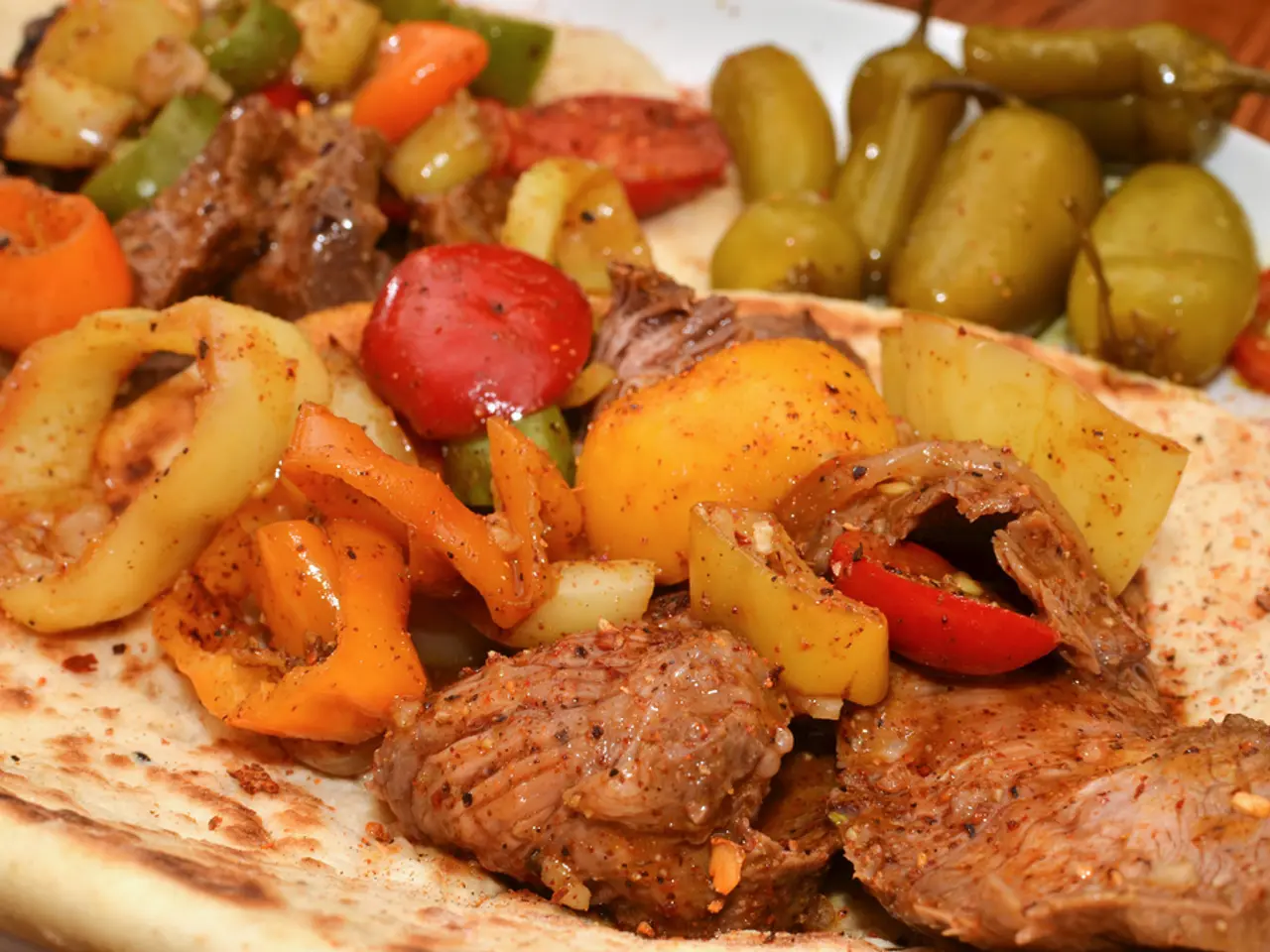A historic urban haven caters perfectly to vegetarian wanderers.
In the heart of Georgia lies the region of Imereti, with its largest city, Kutaisi, showcasing a unique culinary tradition that is deeply rooted in history and climate. This distinctive cuisine, centred on fresh, local ingredients and simple, fragrant flavours, has been shaped by the region's rich historical legacy and temperate climate.
Kutaisi, a city steeped in history, reflects its heritage in its food culture. The cuisine draws heavily on traditional Georgian recipes passed down through generations, such as those documented by 19th-century figures like Barbare Jorjadze. This historical position as a cultural hub has led to a fusion of influences, yet Kutaisi's cuisine retains a strong local identity, emphasising village meats, cheeses, and especially its renowned wine culture.
The mild climate and fertile lands of Imereti support an abundance of fresh produce, fragrant herbs, and vegetables, which are central to the region's cuisine. This bounty results in a cuisine that is often lighter, with many vegetarian and vegan-friendly options, reflecting the availability of fresh, seasonal ingredients and the local preference for highlighting their natural flavours.
Traditional dishes like chicken shkmeruli (garlic chicken) and kharcho (a hearty soup) originate from this region and showcase how local produce and culinary traditions merge. Unlike other regions of Georgia, Kutaisi's local menu traditionally omits dishes like khinkali dumplings, focusing instead on unique regional dishes that represent the area's agricultural and climatic profile.
One of the gastronomic delights in Kutaisi is Imeruli khachapuri, a flatbread stuffed with Imereti cheese. Another common food item found in the city's bustling Green Bazaar is Imeruli cheese. For those seeking a more extended dining experience, Palaty offers white wooden walls plastered with notes, gramophones, and live jazz, while Baia's Winery, located outside of Kutaisi, offers an ample pkhali, clay pot mushrooms, and conversation, making it worth the 40-minute drive for the wine tasting and Imeretian smorgasbord.
Foraging for wild herbs like spinach and nettles from early spring until late October is considered a cherished tradition passed down through generations among the locals in Kutaisi. This practice, along with the use of local ingredients, ensures the preservation of culinary heritage and the celebration of the region's fresh flavours and cultural authenticity.
The terroir influence is easy to remark in the three white grapes - Tsolikouri, Tsitska, and Krakhuna - which are dominant nowadays in the region. Kutaisi's Green Bazaar, a bustling market where locals shop, chat, and sample food, provides a soft soundtrack to the city's bazaar bustle. The Rioni River, flowing nearby, adds to the city's picturesque charm.
Kutaisi, one of the world's oldest continuously inhabited areas, is not just a city of history and culture but also a city of literature. designation as a UNESCO City of Literature in 2023 saw the opening of Gala, a restaurant in honour of Galaktion Tabidze, one of Kutaisi's most renowned poets. This harmonious blend of history, culture, and culinary tradition makes Kutaisi a must-visit destination for food lovers and history enthusiasts alike.
- The city of Kutaisi, embedded in history, mirrors its heritage not only in its architecture and traditions but also in its food culture.
- Kutaisi's cuisine is deeply influenced by Georgian culinary traditions, some of which are documented by 19th-century figures like Barbare Jorjadze.
- The distinct fusion of influences in Kutaisi's cuisine has been shaped by its historical position as a cultural hub, while maintaining a strong local identity.
- Imereti's mild climate and fertile lands foster an abundance of fresh produce, herbs, and vegetables that are central to the region's unique, often lighter, cuisine.
- Palaty, a restaurant in Kutaisi, offers a dining experience with live jazz, notes scribbled on walls, and an Imeretian smorgasbord, including clay pot mushrooms and local wines.
- Foraging for wild herbs like spinach and nettles in Kutaisi is a cherished tradition, helping to preserve the region's culinary heritage and celebrate its fresh flavors.





